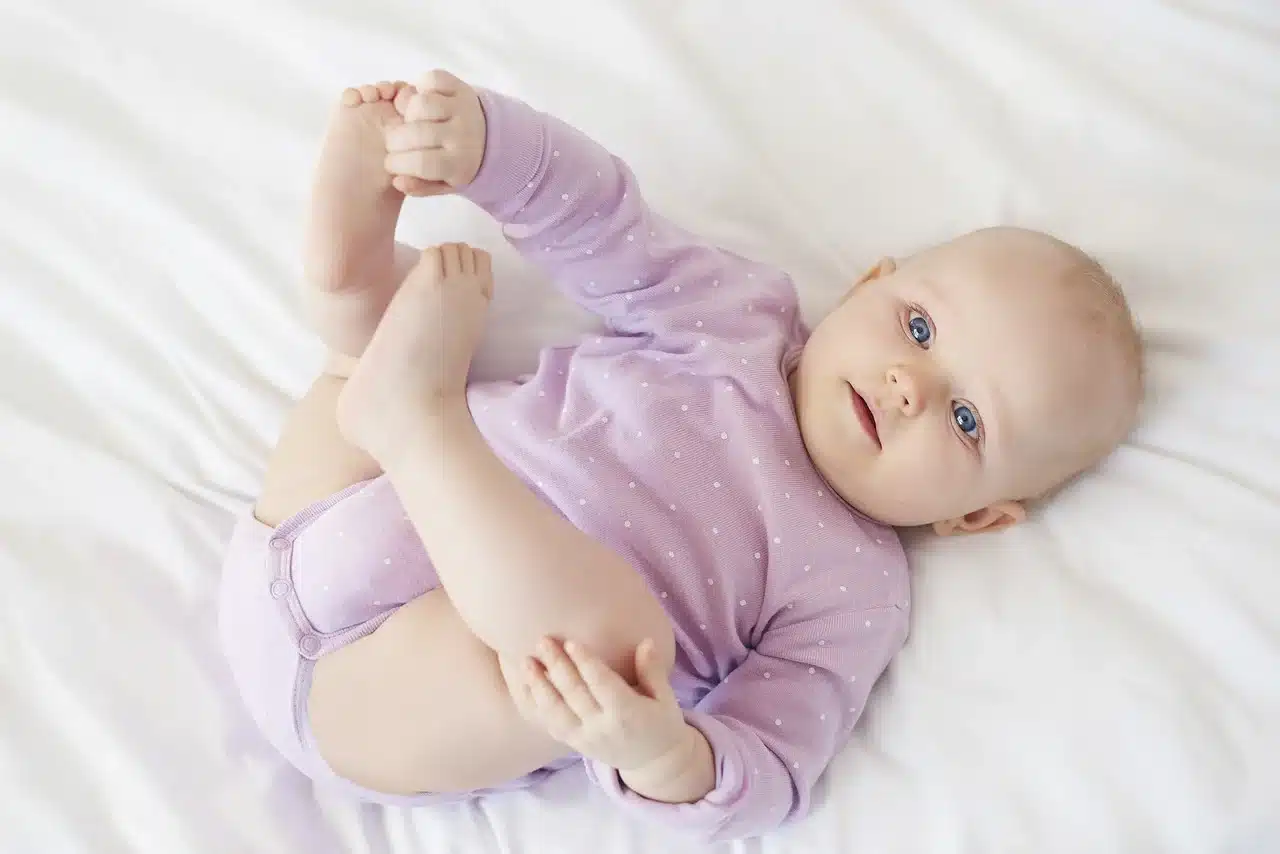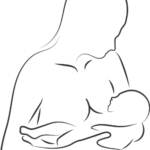Image credit to Alibaba.com
Your 2-Week-Old Baby’s Milestones By the second week of your baby’s life, you may be starting to get into a rhythm of understanding what they need and establishing some routines around infant feeding and care. Or maybe things still feel kind of chaotic and uncertain. All of that is normal—after all, your baby is still really young, and you’re still getting to know each other.
On the developmental side, not too much in terms of gigantic developments happen with your baby between their first and second week. Nevertheless, your baby is coming out of their shell a little more, and there are some exciting changes lying ahead.
Let’s take a look at what to expect when it comes to your 2-week-old’s development, feeding, and sleep patterns, and what you need to know about newborn care and safety.
At This Age
- Development: Your baby may have their first growth spurt at 2 weeks.
- Sleep: Although your baby will still spend most of her time sleeping at this age, there will be more alert periods.
- Food: You can start to establish some feeding routines, but you should still get up frequently for feedings, even at night.
Development
According to Amy Verlsteffen, APRN, Senior Director of Clinical Transformation at TytoCare, many babies have their very first major growth spurt at two weeks. This can come as a surprise to parents and sometimes make feeding a little more difficult for quite some time.
“They may feel overwhelmed at the increased frequency of wanting to eat,” Verlsteffen says. “My advice here is to make sure mom is drinking plenty of water and eating well, too, to keep up with the baby’s nutrition demands.”
It is through trial and error that you will understand what your baby needs, but remember, your baby’s cries are their means of communication. After checking all the probable physical causes, your best hope is to hold and console your baby. All of these work great: rocking, shushing, singing, walking, swaddling, or even wearing your baby in a baby carrier.
2-Week-Old Baby Milestones
Your baby will still have poor vision, seeing mostly black and white, and cannot focus on anything farther away than 8 to 20 inches.
Your baby may respond to your face, says Pierrette Mimi Poinsett, MD, pediatrician and consultant for Mom Loves Best, so ham it up. “You can hold your baby about 8-10 inches from your face,” she suggests, “and then stick your tongue out.” You might notice that they will stick their tongue out in response.
She’ll also be able to lift her head a bit more in tummy time. Lie your baby on their tummy on a very soft and safe surface for about 3-5 minutes, only while awake. Tummy time allows your baby to exercise and firm up muscles.
Additional Behaviors
Other baby behaviors and milestones you may notice at two weeks include:
- Your baby should be responding to loud noises and the sound of your voice.
- Any birth lacerations or bruising should be fading at this age.
- If your baby has any birthmarks you might see them now; a strawberry hemangioma is a birthmark that can grow and appear a few weeks after birth.
If your baby doesn’t seem to respond to loud noises you can contact your pediatrician, as your baby could have some problem with hearing. You should also get in touch with your pediatrician if your baby isn’t waking up for feedings at this age, or is crying frivolously.
2-Week-Old Baby Food
At two weeks, your baby should still be feeding frequently. Six to 8 feedings per day are common for formula fed babies. Breastfed babies will nurse 8 to 12 times in 24 hours, which may amount to every 1 to 3 hours.
It’s best not to be tied to a feeding schedule, and feed your baby when they show signs of hunger.
The American Academy of Pediatrics recommends what’s called “responsive feeding” at this age, where you learn to recognize your baby’s hunger cues and feed them on demand. Some of the hunger cues that you may be able to recognize are a baby who puts fingers in their mouth, moves their head from side to side, or even makes suckling motions with their mouth.
Your baby may also begin cluster feeding, or nursing quite frequently, often in the evening. This can mean that your baby will be more wakeful, sleeping only an hour or two at a time. This can be very tiring and stressful for the parents. However, this is all part of a good cause. “Cluster feeds in breastfed babies increase their mother’s milk supply, whereas cluster feeds in formula-fed babies are a cue to the parents that they need to increase their volume of feeds,” says Dr. Poinsett.
Also Read : 1-Week-Old Baby’s Milestones and Development
2-Week-Old Baby Sleep
By two weeks, “babies are still sleeping a lot—up to 20 hours per day is still normal,” says Dr. Burgert.
Your baby just can’t sleep longer stretches at night yet. “Expecting any more than an hour or two of consecutive sleep may be unreasonable, especially if the baby is going through a growth spurt or if day-night confusion is still present,” Dr. Burgert explains, though some babies will start to sleep longer stretches at night.
Verlsteffen says, “If your baby hasn’t surpassed birth weight yet, it’s a good idea to wake them to feed so you can be sure they are getting enough to eat, so their growth is on track.”.
If your baby is growing well and he’s sleeping longer stretches, just enjoy it,” she says. “Some babies will go 2 to 3 hours while sleeping and some will sleep only 30 minutes,” says Verlsteffen. “Each baby is different, and it’s important to learn their cues and cries to see how you can help meet their basic needs.”.
They have to be put to sleep safely in a crib or bassinet, with no blankets or pillows, on their back. The AAP further adds that you should never let your baby sleep in a car seat, swing, or baby seat and highly discourages co-sleeping.
2-Week-Old Baby Schedule
A day in the life with a two-week-old baby includes much sleeping—well, at least for the baby!—feeding, changing diapers, and those very dear moments when your baby is awake and alert, and you get to look right into their eyes.
Skin-to-skin contact can promote weight gain, help make breastfeeding more successful, and regulate your baby’s temperature. You can also wear your baby in a baby carrier or sling to promote bonding time with you and your baby while also allowing you to do things around the house.
2-Week-Old Baby Health and Safety
You would have visited your pediatrician first within a few days after birth, probably at two weeks, with a follow-up when your baby reaches the age of one month. There may still be so many questions you may have about the health and safety of your baby, and you shouldn’t feel any hesitation to reach out with questions to your pediatrician.
At the hospital before discharge, your baby received the Hepatitis B vaccination. They may also have had the RSV vaccine; this is typically given either during their time in the hospital or at their first pediatrician visit.
But because your baby is not protected against most viruses and infections at this age, pediatricians recommend that you take extra precautions at this age not to expose your baby to common viruses that could be harmful to them.
Most pediatricians will tell you to ask everyone who will visit with your baby how they are feeling, and whether they have been vaccinated against whooping cough, the flu, and other circulating viruses. When you feel that too many visitors have come around your new baby, never feel bad about sending them away. You aren’t being rude; you’re just protecting your baby.
You’ll also want to be aware of hazards in your house that your baby may be vulnerable to. Especially, parents may not realize that babies at this age can easily roll off some surface where you place them. Be particularly aware of keeping a hand on your baby at all times, including when you are changing diapers, especially.
2-Week-Old Baby Care Basics
Bathtime
Now, within about two weeks or so comes the really exciting part: the baby’s first bath, which they can have once their umbilical cord stump falls off. Prior to this, they should only get sponge baths.
Remember, though, you don’t need to bathe your baby daily. According to experts, three baths a week are ample to keep your baby clean without drying out delicate skin.
Umbilical Cord Care
By 2 weeks of age, most babies’ umbilical cord stumps will have dried and fallen off. If this hasn’t happened for your baby, notify the pediatrician, but don’t try to assist it along. Keep it dry, and let it air out and dry off. It will drop off in its own good time.
Diaper Changes
By now, your baby’s poops will most likely be yellowish and seedy if breastfeeding, or more tan or brownish if formula feeding.
Six wet diapers a day are considered normal and babies at this age just love to poop multiple times a day. It is good to have at least 6 to 8 diapers in stock every day and tons of baby wipes.
What Else to Know About Your 2-Week-Old Baby
Even by two weeks, sometimes breastfeeding can be difficult. Some babies merely find it hard to stay latched on, and some aren’t gaining weight as fast as normal. If your baby is causing your nipples to crack, become sore, or bleed with his latch, or if your baby isn’t gaining weight despite frequent feedings, you may want to check with a lactation consultant.
Although it is an acceptable choice by any parent, for the most part, breastfeeding problems at two weeks in are quite typical, with most problems correctable by supporters and simply taking a bit of time.
Key Takeaways About Your 2-Week-Old Baby
Two weeks is an exciting time for your baby, as they begin to show you a little bit more of their personality. But it’s also an important transitionary time for you, especially if you are recovering from giving birth.
Importantly, two weeks postpartum is when your hormones start to settle. It’s common to experience “the baby blues” as you move through sleep deprivation and hormonal changes.
You, though, should be more even-tempered. If you are finding the going tough, you could be suffering from a postpartum mood disorder, like postpartum depression, and seek a doctor or therapist.










